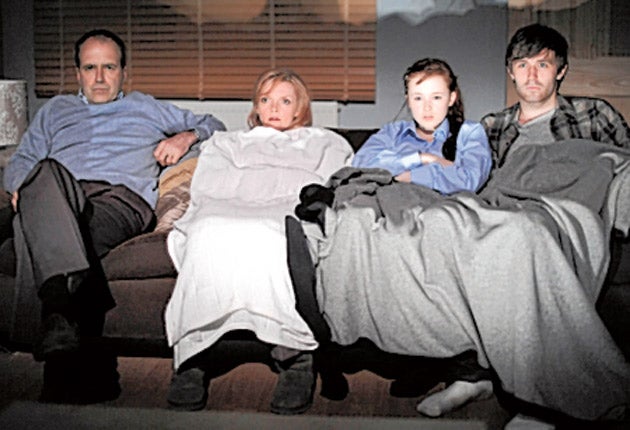Spur of the Moment, Royal Court, London

Your support helps us to tell the story
From reproductive rights to climate change to Big Tech, The Independent is on the ground when the story is developing. Whether it's investigating the financials of Elon Musk's pro-Trump PAC or producing our latest documentary, 'The A Word', which shines a light on the American women fighting for reproductive rights, we know how important it is to parse out the facts from the messaging.
At such a critical moment in US history, we need reporters on the ground. Your donation allows us to keep sending journalists to speak to both sides of the story.
The Independent is trusted by Americans across the entire political spectrum. And unlike many other quality news outlets, we choose not to lock Americans out of our reporting and analysis with paywalls. We believe quality journalism should be available to everyone, paid for by those who can afford it.
Your support makes all the difference.When Christopher Hampton wrote When Did You Last See My Mother?, a painfully raw study of adolescent sexuality, in 1964, he became the youngest playwright in the history of the Royal Court and the West End.
Nowadays, the Royal Court is stiff with young dramatists charting their own dysfunctional families and personal crises with all the bravura of a generation for whom the stage doors have been thrown wide open.
Anya Reiss is the latest new name to have come through the Court's Young Writers Programme. She was just 17 when she wrote Spur of the Moment and the piece has a disarming, almost embarrassing, quality of utter authenticity and middle-class breast-beating.
In an unspecified location, in a split-level suburban house, Dad has lost his job after having an affair with the (female) boss and Mum is making him pay for it. The house has been re-mortgaged and a young lodger, Daniel, installed. Daniel is 20, and his bedroom is right across the hall-way from 12-year-old Delilah's. Buoyed up on the peer pressure of her three friends, Delilah develops a crush on Daniel that becomes complicated when his girlfriend comes to stay.
The director Jeremy Herrin, who produced the defining play of this latest new wave, Polly Stenham's That Face, allows Reiss her full head of steam in the choppiness of the dialogue and the adolescent angst experienced by Delilah, played with spooky assurance and a hot flush of confusion at her own awakening sexuality (she's about to be 13) by Shannon Tarbet.
It's domestic claustrophobia that pushes her over the edge, but nothing terrible really happens, though it's something of a surprise that her parents (Sharon Small and Kevin Doyle) seem immune to the possibility. In the one long speech in the play, James McArdle's Daniel reveals what a loser he is, too: what on earth does he think he's doing?
To 14 August (020 7565 5000)
Join our commenting forum
Join thought-provoking conversations, follow other Independent readers and see their replies
Comments